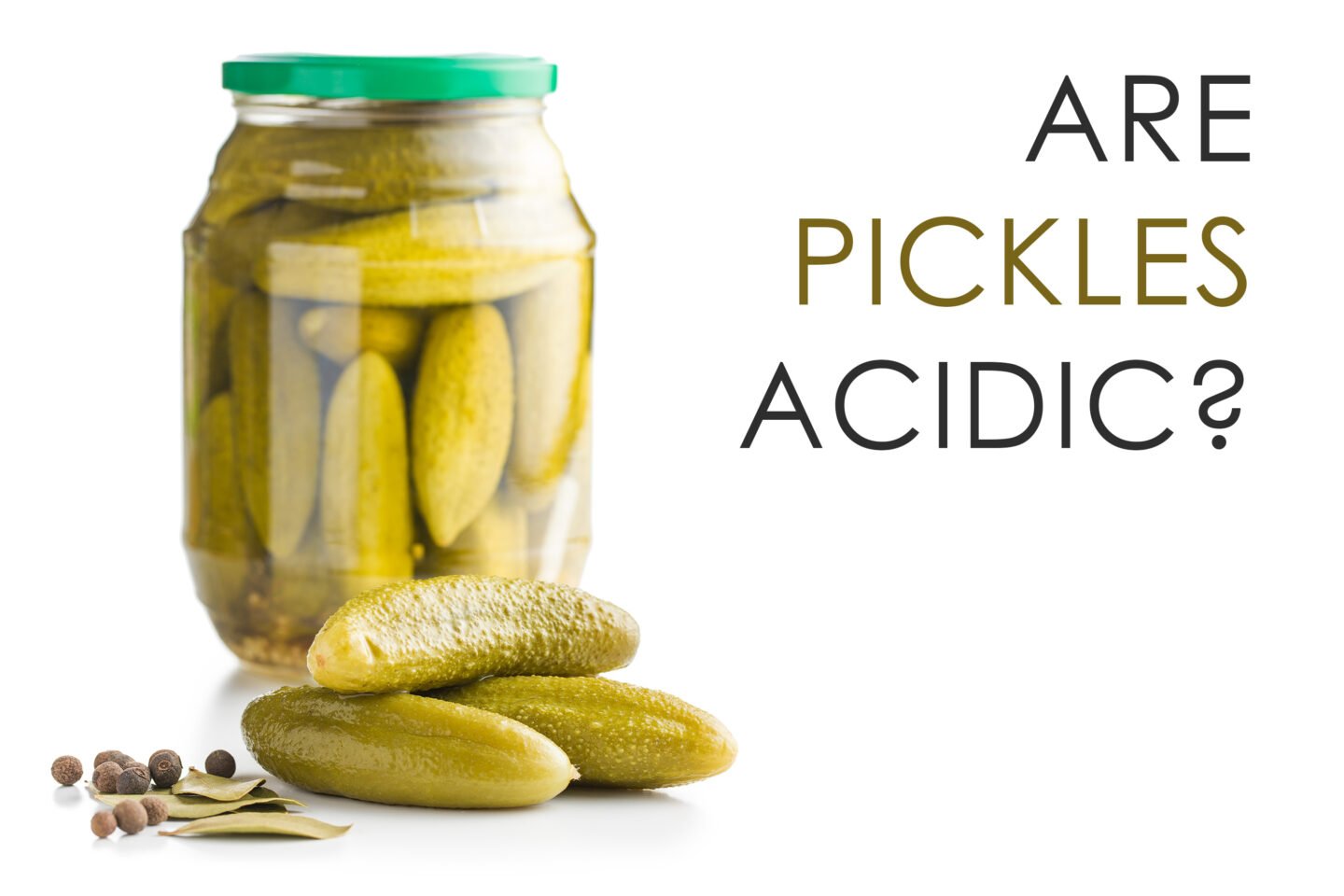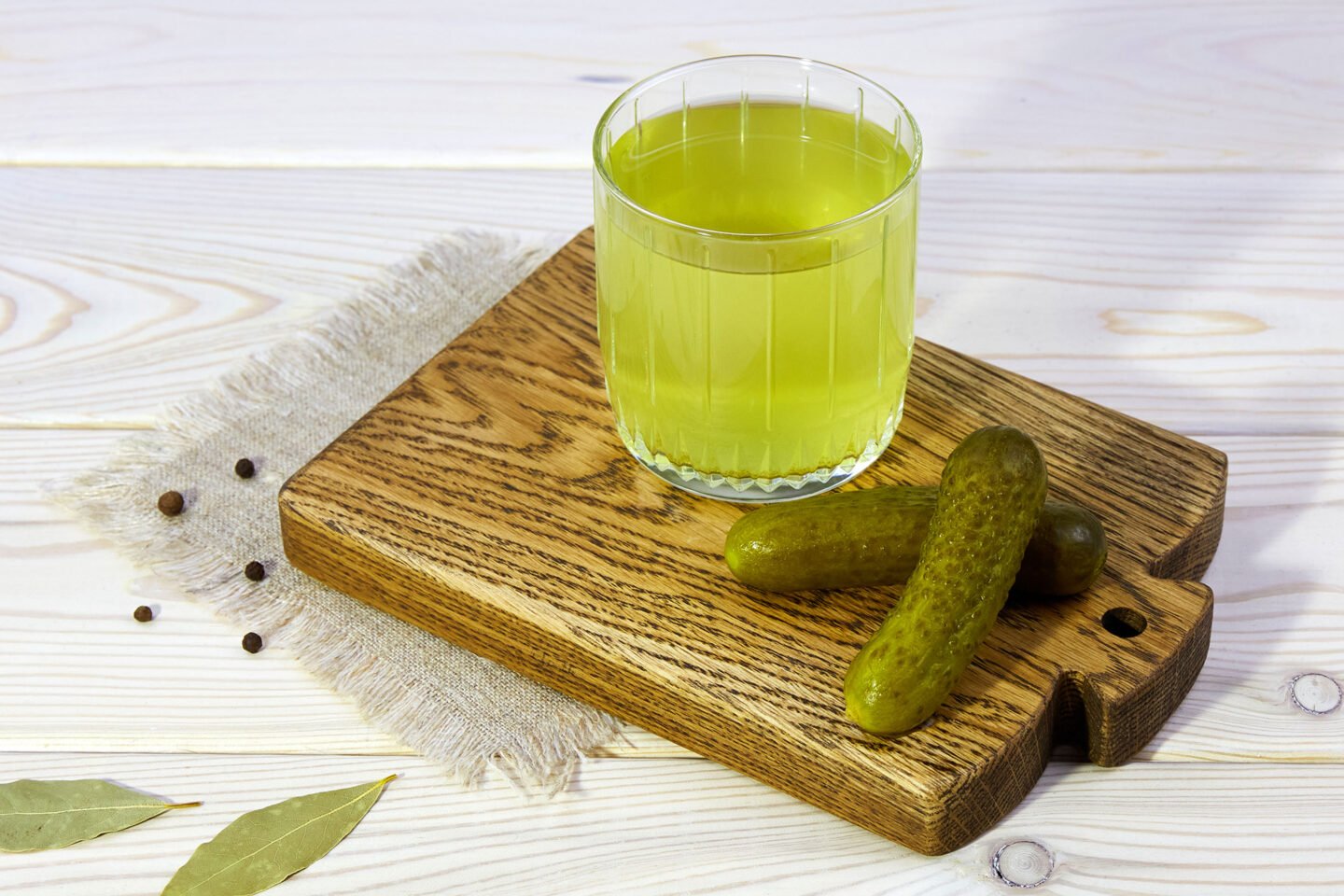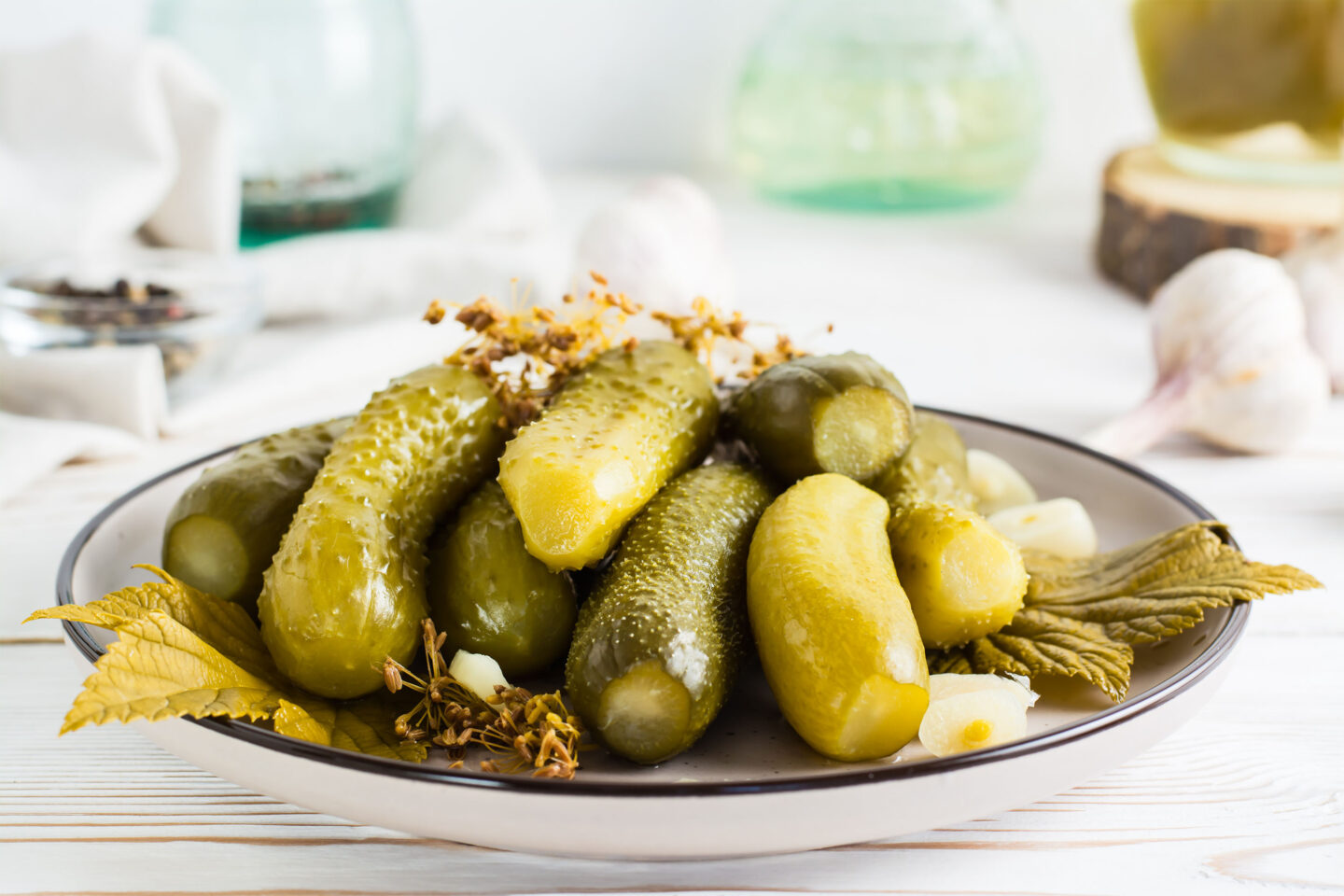Pickles' flavor and crunch make them the perfect snack, either on their own or as part of a sandwich or salad. They're low in calories and, although high in sodium, have several health benefits, especially fermented pickles.

However, people suffering from acid reflux or GERD often follow a low-acid diet to avoid triggering or worsening their symptoms, like heartburn. These people must know the acidity of common foods and how each affects their symptoms.
Table of Contents
Are Pickles Acidic or Alkaline?
Pickles are acidic, with a pH between 3 and 3.8. Therefore, eating too many may trigger or worsen acid reflux symptoms.
Are Pickles Good for You?
Although pickles can be high in sodium, they're low in calories and rich in vitamins B and K.
Eating fermented pickles can reduce inflammation and insulin resistance.

Drinking pickle juice may aid weight loss and prevent muscle cramps during exercise.
People on a ketogenic diet drink pickle juice to maintain their electrolyte balance.
Will Eating Pickles Cause my GERD to Act Up?
Every GERD sufferer has different symptom triggers; some may be able to tolerate the acidity of pickles, and others may not.
What's the Difference Between Pickles and Fermented Pickles?

Some pickles are fermented, meaning their sour flavor comes from a reaction between the sugar in cucumbers and bacteria. Regular pickles are just soaked in brine or vinegar.
Are Cucumbers Acidic?
Cucumbers are slightly acidic, with a pH between 5.1 and 5.8.
How To Use Pickle Juice
Below are a few ways to use up leftover pickle juice.
Use the brine to pickle something else, such as onions.
Add pickle juice to the water as you boil potatoes to make a salad, giving them a delicious tang.
You could even add a splash of pickle juice to your next Bloody Mary.
Don't know what to drink? Check out these articles: 20 Most and Least Acidic Juices and 20+ Alcoholic Drinks Ranked by Acidity Level
